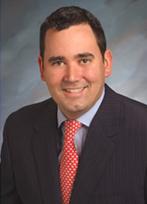This week, the Colorado Supreme Court rejected Treasurer Walker Stapleton’s appeal to get more information from the state’s pension fund about the top 20 percent of benefit recipients. The move has Stapleton – and us – questioning whether the ruling was colored by a very obvious conflict of interest: the fact that the judges themselves are members of the state’s public employee pension fund. 
Here’s what Stapleton had to say in the Grand Junction Sentinel:
“The fact that the court doesn’t take up a case where three statewide elected officials from different political parties are all asking to please review the case I think is deeply disappointing,” Stapleton said. “Call me a cynic, but it’s also worth pointing out that every single member of the judicial branch are also members of [the Public Employees’ Retirement Association] PERA.”
The three elected officials Stapleton is referring to include himself, Republican Attorney General John Suthers and Democrat Gov. John Hickenlooper. The issue of transparency and pension solvency clearly crosses party lines, so why is the Court so reluctant to pull back the curtain?
PERA has been fiscally unsound for years, and Stapleton has simply been trying to figure out just how bad the state’s pension solvency really is by requesting some basic information. Since any PERA shortfall would be backfilled by Colorado taxpayers, the public has a right to see these records. By refusing to let Stapleton shine a light on PERA’s books, the justices are just fueling the suspicion that there is something to hide.

http://coloradopols.com/diary/66099/the-incredibly-intricate-colorado-pera-sb10-001-political-web
Bruce Malkenhorst – retired administrator for the tiny city of Vernon, who pleaded guilty to misappropriating public funds in 2011, and who received pension checks totaling a rather stunning $541,000 in 2012 – says yes.
On Friday, Malkenhorst opened a new front in his knock-down, drag-out war to prevent his retirement check from shriveling to $115,000 a year. He sued the state of California and the city of Vernon in federal court, arguing that a new law to protect Vernon from having to make up the vast difference between those two numbers is unconstitutional, “because it seeks to interfere with the vested property rights of a United States citizen, who pled guilty to a felony charge, even though the property that the government seeks to seize is property unrelated to the facts underlying the felony.”
Malkenhorst, who lives in Huntington Beach, was earning $529,536 as Vernon's city administrator, finance director, redevelopment director, city clerk, city treasurer, and head of the municipal light and power operation by the time he retired in 2005. He quickly became the top-paid public pensioner in the entire Golden State, and, perhaps, anywhere.
The checks continued even after he pleaded guilty in 2011 to misappropriating $60,000 in public funds and using it for political contributions and personal expenses such as golf games, massages, a personal trainer and a home security system.
http://www.ocregister.com/taxdollars/vernon-604192-malkenhorst-calpers.html
http://www.pensiontsunami.com/index.php
In California they release this same information. Look at how many make bank from their retirement plans. Heck the Feds are even worse as they end up making more retired then when they actually worked.
http://www.fixpensionsfirst.com/calpers-database/
Valerie Individual names and payments must be public information. I would bet there are some retired Judges making bank off of their PERA payments and don't want this information public.
Judges are always in Conflict of Interest on many cases because of their pecuniary interest via invested stocks through PERA. Wouldn't you protect your check? Yep you would.
Look at this Calpers disclosure from California and see their top 10 list and let me know if it makes sense to you now and why the Treasurer wants this information disclosed to Us actual makers and real providers for government retirement plans!
http://www.fixpensionsfirst.com/calpers-database/
If the request involved divulging individual names and personal information, the Court's ruling was appropriate. All actuarial data is available to the public.